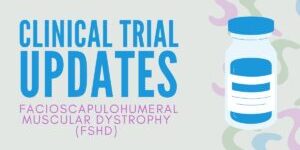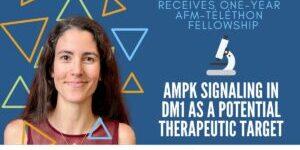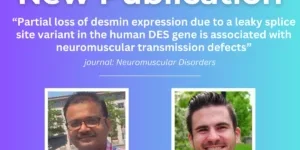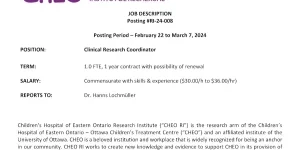Foundation grant success for the Lochmüller Lab!
We are thrilled to announce that our Foundation Grant application on Precision Health for Neuromuscular Diseases (NMD) has been funded in the Canadian Institute for Health Research’s 2018 – 2019 competition.
The overarching goal of our translational research program funded through this award is to understand the molecular pathogenesis of NMDs in order to improve diagnosis, inform clinical care, and develop targeted therapies. The program is focused on the molecular genetics of NMDs, with emphasis on congenital myasthenic syndromes (CMS) and myotonic dystrophy (DM1). We look forward to working with colleagues in Ottawa, across Canada and around the world to improve the diagnosis and treatment of these devastating disorders.
The Foundation Grant program provides up to seven years of funding, which is designed to give research leaders the flexibility and sustainability to pursue new lines of enquiry and demonstrate real impact. This award is fantastic news for our lab and for neuromuscular research in Canada. Thanks to all our co-workers for supporting us during the grant writing stages, to the reviewers who took the time to understand our goals and who evaluated our work so positively, and to CIHR for approving the project. Congratulations to the other Foundation Award recipients at CHEO-RI and uOttawa. We’re excited to get started!
More about the project:
Voluntary movement of muscles in humans requires electric signalling down the nerves: beginning at the spinal cord and ending at muscles that help us speak, eat, breathe and move. This process is impaired in neuromuscular diseases (NMDs), which are associated with progressive muscle weakness, disability and early death. Until recently, most NMDs were very difficult to diagnose and considered untreatable. Fortunately, genomics (deciphering a person’s genetic code to understand the mutation responsible for a particular disease) has transformed our ability to diagnose and treat these devastating disorders. This research program studies gene mutations responsible for NMDs to provide a diagnosis, understand disease progression, and test new therapies. Our program focuses on two types of NMDs: congenital myasthenic syndromes (CMS) and myotonic dystrophy (DM1). We will use a combination of genomics, molecular biology, animal models and clinical trials to improve their diagnosis and treatment. Specifically, we will:
- Use genomics to identify new genetic causes of CMS.
- Use genomics, molecular biology, and animal models to understand how genetic mutations cause NMD in order to guide treatment and identify new therapies.
- Build an ‘Ottawa River’ cohort of families with DM1 and use patient samples to study biomarkers, leading to the identification of new biomarkers to indicate which patients will be most responsive to therapy and biomarkers that enable measurement of treatment response in clinical trials.
- Conduct clinical trials to test new NMD therapies for CMS and DM1 using novel and repurposed drugs.







